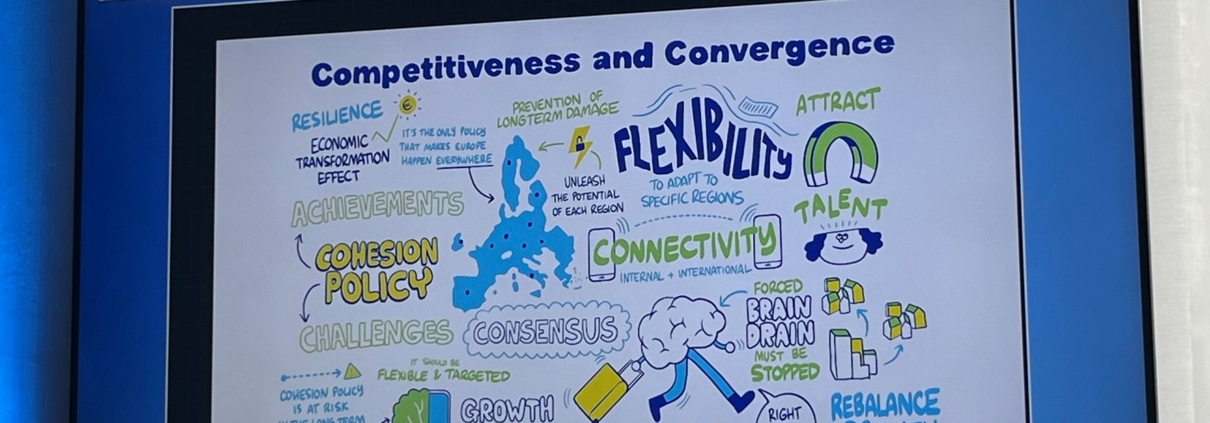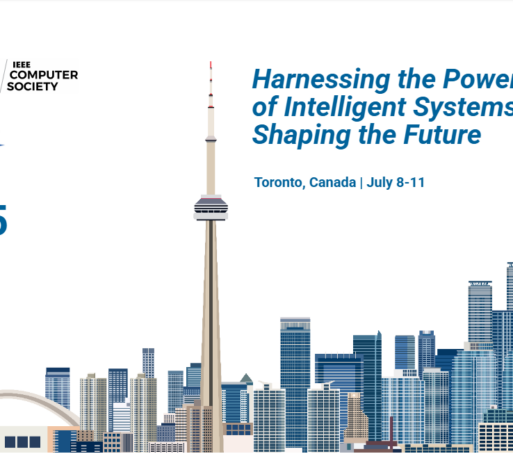AI, Data, and Citizen Engagement in the EU Regions Week 2024
From the 8th to 10th of October, the 22nd European Week of Regions and Cities in Brussels provided valuable insights for DATA CELLAR. The event addressed many relevant themes such as the role of data sharing, artificial intelligence (AI), digital transformation, and citizen engagement in accelerating the EU’s energy transition; and underscored the critical role of regions in driving these changes.
The role of AI in local ecosystems
One of the recurring themes was the growing significance of AI in addressing local challenges. The need for interdisciplinary collaboration and tailored solutions that meet the unique needs of regional communities was emphasised. AI, often viewed as an “exponential technology”, is becoming essential in optimising everything from disaster management to healthcare, but its impact can be most effective when aligned with the local context.
AI’s potential to enhance local energy systems was a particularly compelling takeaway. By integrating AI-powered tools into energy communities, regions can optimise energy consumption, improve efficiency, and support renewable energy adoption. The emphasis on linking technological advancements with societal needs was clear – innovation must be driven not only by technical excellence but also by an understanding of how it improves daily life.
Digital transformation and data security
Another major discussion centered on the importance of digital transformation in empowering regions and ensuring they can keep pace with global technological advances. With contributions from representatives of different regions, it became evidence that robust digital infrastructure and enhanced cybersecurity measures are critical to enabling regions to thrive in a rapidly evolving digital landscape.
Investments in high-speed connectivity were highlighted as crucial for reducing the digital divide between urban and rural areas. Ensuring that all regions have access to modern technologies is essential for their growth and resilience. Data security also emerged as a central concern, particularly with the increasing frequency of cyberattacks targeting not only large corporations but also small businesses and local administrations. This emphasis on cybersecurity is especially relevant as regions and local communities begin to handle vast amounts of sensitive data, including energy usage and personal data.
Citizen engagement is heart of the energy transition
One of the most pressing challenges discussed during the event was how to engage citizens in the energy transition. In sessions focused on fostering the social impacts of this transition, it became clear that public participation is not just nice to have – it’s essential for the success of any energy initiative. However, barriers to engagement remain, including low awareness of energy issues, competing priorities, and limited trust in new technologies.
Participants in these discussions underscored the importance of involving citizens early in the decision-making process, ensuring that they feel their input is valued. Building trust with communities is key, and this can be achieved by working with local ambassadors, engaging in meaningful dialogue, and being transparent about the benefits and impacts of new technologies. These principles are particularly relevant when dealing with complex and often abstract innovations, like energy data spaces and AI.
There were also calls to simplify the language used to discuss technical solutions. To engage citizens effectively, the conversation needs to shift from abstract concepts to tangible benefits – like how smart meters or energy data systems can lower energy bills, increase energy efficiency, and support environmental goals.
Collaboration and interoperability
Throughout the week, there was a strong emphasis on the importance of collaboration across regions, sectors, and stakeholders. By connecting local governments, universities, businesses, and citizens, regions can build robust ecosystems capable of driving both technological and social innovation. Initiatives like BRIDGE, in which DATA CELLAR takes part, which fosters interoperability between various energy projects and data systems, are helping to break down barriers and create a more cohesive approach to the EU’s energy transition.
The message was clear: regions need to be at the forefront of innovation. Whether it’s using AI to optimise local energy systems or ensuring that data spaces are secure and accessible, regions have a critical role to play in shaping the future. By bringing citizens on board and working together across disciplines and sectors, we can ensure that the benefits of these advancements are widely shared and sustainable in the long term.





